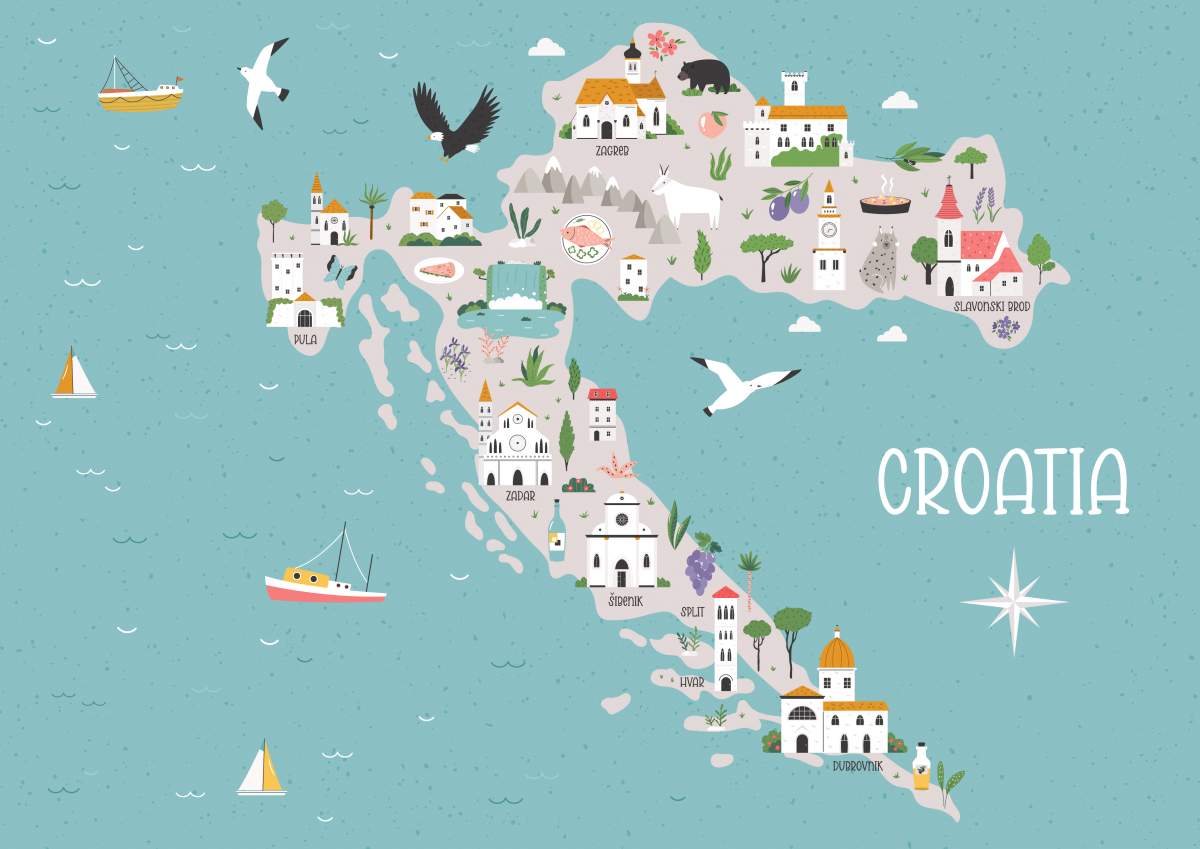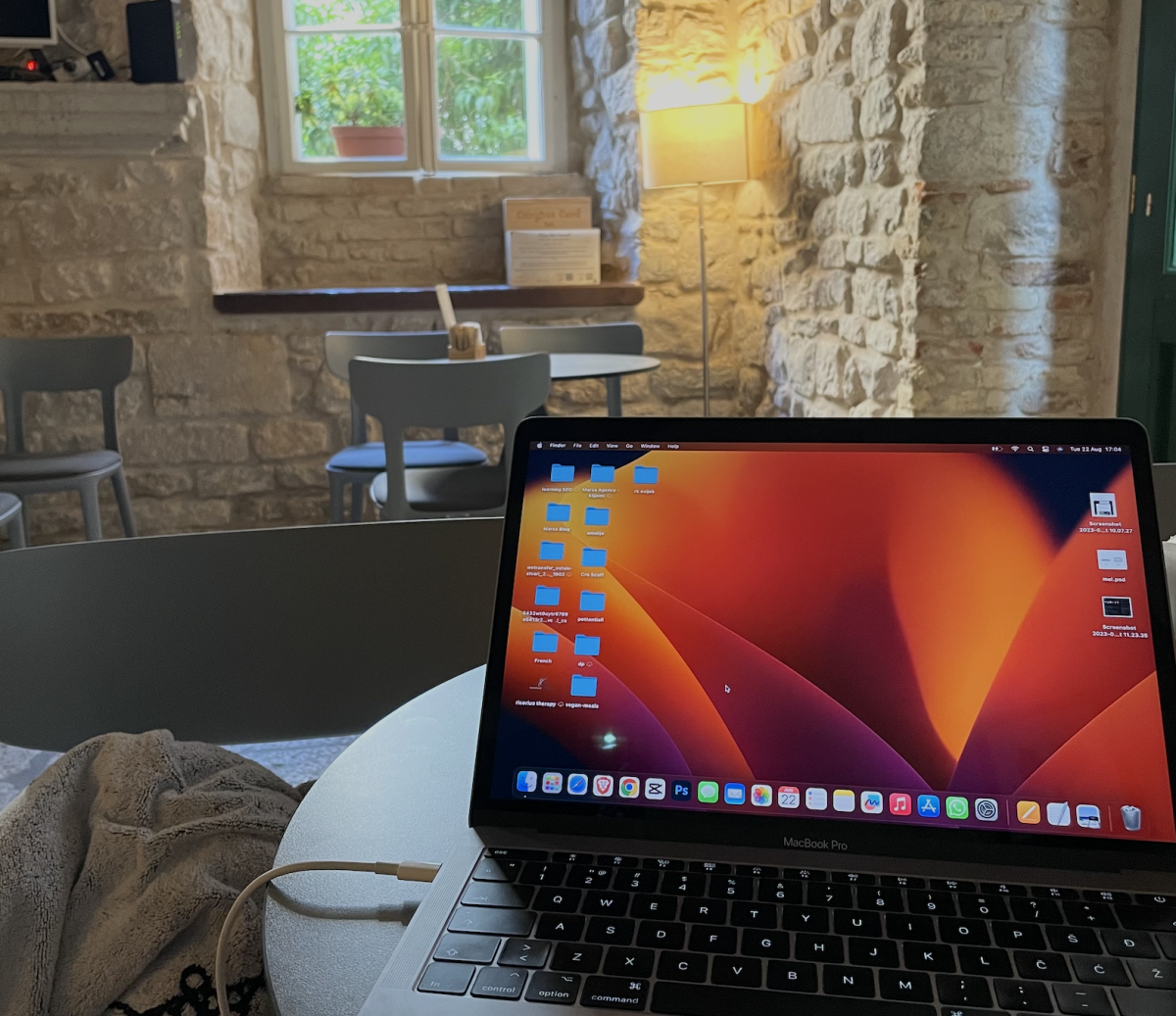Croatia Digital nomad visa requirements in 2025
Citizens of the European Union are free to move around the EU, and it is possible for them to work from any member state without a visa or work permit.
There are also citizens from non-EU countries who are willing to spend some time combining work and pleasure from the best spots in Europe.
Those citizens (from EU and non-EU countries) are often called digital nomads, freelancers, and remote workers. They are taking advantage of their online job so they can work from any place in the world that has stable Wi-Fi.
In a year, the approx. 120,000 digital nomads visit Croatia for vacation or work purposes.
Several countries are often considered great options for digital nomads, such as Spain, Argentina, Romania, the UAE, and Croatia.
In this guide, we’ll cover everything you need to know about Croatia’s digital nomad visa, including its requirements, tax policies, processing times, and the best places for remote work.
What is the Digital nomad visa?
Digital nomad visas permit individuals to work remotely while residing in a foreign country.
Typically, to qualify for this visa, one must be employed by a company or organization located outside of the host country, or have a business that can be managed from any location around the globe.
This visa is part of a broader trend in digital nomad visa Europe programs, designed to attract skilled professionals seeking flexible work arrangements in scenic locations.
Does Croatia offer a Digital Nomad Visa?
Yes, Croatia offers a digital nomad visa tailored for remote workers. Officially referred to as a "temporary stay permit," this visa allows non-EU citizens to live in Croatia for up to 12 months while working remotely.
It positions Croatia as a prime destination for digital nomads in Europe.
If you plan to travel to Schengen countries (in this case Croatia), kindly ensure that your entire visit remains within the 90-day visa-free limit.
Please note that any visits to Schengen countries in the 180 days before your travel will be counted towards this 90-day limit.
To avoid complications, it is advisable not to exceed the 90-day visa-free allowance, as extended stays may result in a temporary restriction on entering Schengen countries for up to 3 years.
Croatia Digital nomad visa requirements
For your information, navigating the Croatian bureaucracy can occasionally be quite challenging, even frustrating sometimes. But be patient, maybe in your case, it will be perfectly on time.
To qualify for the Croatia digital nomad visa, applicants must meet specific requirements:
-
Proof of remote employment Documentation showing you work remotely for a company not registered in Croatia or are self-employed.
-
Sufficient funds Proof of financial stability, with a minimum monthly income requirement of €2,870. If you plan to stay in the Republic of Croatia for 12 months, provide proof that you have at least €34,440.00 available in your account.
-
Health insurance Comprehensive health insurance is valid in Croatia for the duration of your stay.
-
Background check A clean criminal record is verified through a background check.
-
Croatia digital nomad accommodation proof Evidence of a place to stay in Croatia, such as a rental agreement or hotel reservation.
-
Application fee Payment of the visa processing fee.
Do digital nomads pay tax in Croatia?
One of the key advantages of Croatia’s digital nomad visa is its tax incentives. Holders of this visa are exempt from paying Croatian income tax.
However, it’s essential to consult a tax professional to ensure compliance with tax regulations in your home country.
Tax benefits of the Croatia digital nomad visa

Income tax exemption - you won't be taxed on income earned outside of Croatia.
No Double Taxation To prevent double taxation, Croatia has agreements with several countries. Simple Reporting Digital nomads must provide proof of income but are not liable for local taxes.
How long does a Croatia digital nomad visa take?
The processing time for the Croatia digital nomad visa typically ranges between 3 to 4 weeks. However, it’s recommended to apply at least two months in advance to account for any delays.
How much does a Croatia digital nomad visa cost?
The costs of the Croatia digital nomad visa could range from €97.07 up to €158.54, depending on the payment method.
Where to apply for a Digital nomad visa in Croatia?
-
Online application The application form for a Digital nomad visa in Croatia is available on the website of the Ministry of Foreign and European Affairs.
-
Embassy application Locate your nearest Croatian Embassy or Consulate.
-
Local Police Station Go to the police station closest to your current residence in Croatia.
Which European Digital nomad visa is easiest?
Croatia’s digital nomad visa is among the most accessible in Europe due to its straightforward requirements and affordable cost of living. Other European countries offering digital nomad visas include Portugal, Estonia, and Greece.
Among these, Croatia stands out for its unique benefits:
-
Ease of Application
-
Minimal bureaucracy compared to other EU countries.
-
Favorable Tax Policies
-
Exemptions on local income tax.
-
Affordability Lower living costs than Western European destinations like Germany or France.
Is a Digital Nomad Visa worth it?
The Croatia digital nomad visa is worth it for remote workers seeking a European lifestyle without the complications of work permits or local employment contracts. It provides a legal framework to live and work abroad while enjoying a high quality of life.
Advantages of the Croatia Digital Nomad Visa
-
Access to beautiful coastal towns, national parks, and cultural landmarks. A range of natural beauties to see in Croatia.
-
A thriving community of international digital nomads and expats. There is a possibility to expand your network of business contacts.
-
Friendly locals who are willing to help you and provide instructions and recommendations.
-
Low cost of living compared to other European nations. The average single person’s estimated monthly costs are €740 without rent. Rent in Croatia is, on average, 60% lower than in the United States.
-
Excellent internet connectivity and coworking spaces.
-
The average Internet download speed is 55 Mbps, and the upload speed is 26 Mbps. The 5G mobile internet is also available, suitable for individuals who often change their locations. In rural or less populated areas, the signal tends to be less strong.
How long can I stay in Croatia as a digital nomad?
Upon approval, the Croatia digital nomad visa (or residence permit) grants you to stay and work in Croatia for up to one year.
After this period, please note that it is not possible to renew your visa. According to Croatian law, you would need to leave Croatia for a minimum of six months.
Where is the best place to go as a digital nomad in Croatia?

Croatia offers diverse options for digital nomads, from vibrant cities to serene coastal towns.
Popular locations include:
Zagreb
The capital city is ideal for those who enjoy urban amenities and cultural experiences. Zagreb offers coworking spaces, cafes, and a strong expat community.
A range of specialty coffee shops could be found in the capital city of Croatia. Many of them already provide a separate area for remote workers.
Accommodation for digital nomads in Zagreb

Split
Located on the Dalmatian Coast, Split boasts a Mediterranean vibe with beaches, historical sites, and excellent coworking facilities. Split has a growing number of coworking spaces designed for remote workers.
Short-term rental options can be limited during peak tourist months. Long-term leases might require planning. For specialty coffee shops where you can work, we recommend D16, Kava2, Utopia, Tinel, Ka Kantun, and Meštar o’ Kave.
Accommodation for digital nomads in Split
Hvar Island
Hvar is known for its turquoise waters, lavender fields, and historic charm. For digital nomads, this serene environment can provide a perfect balance between productivity and relaxation. A welcoming destination for digital nomads. While dedicated coworking spaces are limited, several cafés offer conducive environments for remote work.
Accommodation for digital nomads on the Hvar Island
Dubrovnik
Famous for its medieval charm, Dubrovnik provides a stunning backdrop for work and leisure. Embraced its appeal to remote workers by offering good internet connectivity and coworking options. Many cafes around the Old Town and the harbor cater to remote workers.
Accommodation for digital nomads in Dubrovnik
Zadar
Zadar is a hidden gem offering a quieter lifestyle, affordable accommodation, and breathtaking sunsets. Accommodation, dining, and daily expenses are budget-friendly, allowing digital nomads to enjoy a high quality of life without breaking the bank.
Compared to larger cities, Zadar has fewer coworking options. However, its remote-friendly cafes and spaces like COIN help fill this gap.
Accommodation for digital nomads in Zadar
Rovinj
Perfect for those who prefer a small-town feel with cobblestone streets, waterfront cafes, and a relaxed atmosphere. As a small town, Rovinj doesn’t have a robust coworking scene compared to cities like Zagreb or Split.
While there are remote-friendly cafes, coworking spaces may require traveling to nearby cities.
Accommodation for digital nomads in Rovinj
Why choose Croatia as a digital nomad destination?
Croatia's appeal lies in its accommodation affordability for digital nomads, natural beauty, and robust digital infrastructure.
According to Speedtest by Ookla, Croatia is ranked 34th in the world for mobile internet speeds and 88th for fixed broadband internet speeds during October 2024.
The country's location in the heart of Europe allows easy travel to neighboring countries, enhancing its value as a digital nomad hub.








